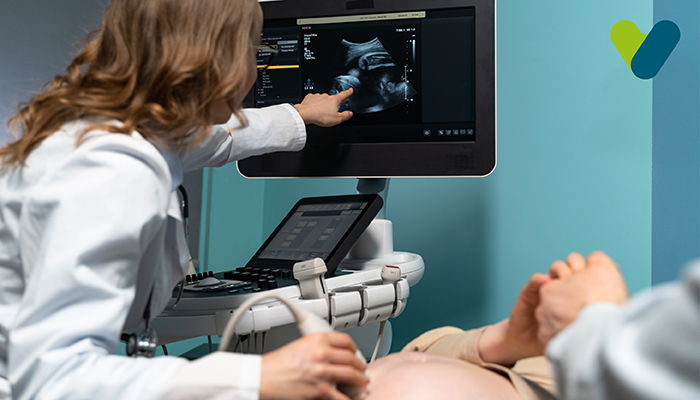Soon after Nidhi got pregnant with her first child, her doctor recommended her to get prenatal tests. These tests are vital to check the health of the mother as well as the baby’s. These tests, as Nidhi was told, are useful for discovering possible abnormalities which could endanger their lives.
Nidhi consulted with her doctor to find out that there are two types of prenatal tests that are a part of the first trimester maternity tests. The first test is a screening test. This test reveals the possibilities of any issues. The second test is the diagnostic test wherein, if the fetus has developed any issues, it is accurately pinpointed.
But what happens in a Prenatal Test?
One of the many goals of a prenatal test is to assess any health problems which the fetus may develop. The gynecologist conducts a full physical exam. This exam includes weight assessment, checking the blood pressure and examining the breasts and pelvis. Mothers due for their routine cervical test can opt to get this test done during the pelvic examination. The doctor may also check for sexually transmitted diseases (STDs) such as chlamydia and gonorrhea.Blood tests help in identifying the blood type and the rh factor. If the mother’s blood is rh negative while her partner’s is rh positive, it may have negative consequences on the fetus. However, Nidhi was relieved to find out that this can be prevented with an injection within the 28th week. Blood tests also check for anemia, HIV, Syphilis, Hepatitis B, chickenpox, measles and spinal muscular dystrophy. Despite the fact that there may be no previous family history, most doctors recommend this test on a routine basis.
Nidhi decided to do some research. She found out that there are various risks and benefits to these first trimester maternity tests. However, she also learnt that these tests are beneficial since it will help her and her family with the arrival of the baby. She was informed that it is ultimately her decision whether she wishes to take these tests or not.
Different Types of First Trimester Maternity Tests
Nidhi did some further research on the different types of first trimester maternity tests to make an informed decision. She learnt that in the initial tests, they test the urine, weight and blood pressure. These tests help pinpoint any possibilities for gestational diabetes or preeclampsia. There are various other tests she could opt for in the first trimester. They are:- First trimester screening: The specialists do a blood test and a generic ultrasound exam to check the health of the baby. In case there are possibilities that the fetus may develop chromosomal abnormalities such as Down syndrome or birth defects, they will find out immediately.
- Ultrasound: Nidhi was relieved to know that the ultrasound test is a safe and painless one. In this test, the gynecologist uses simple machinery which emits sound waves to display scanned images of the baby’s shape and their position. This test is usually done either in the first trimester and even the 11-14th weeks of the pregnancy. In the scenario where Nidhi will have a high-risk pregnancy, she may be required to get multiple ultrasounds.
- Chorionic villus sampling: In this test, the placenta cells are checked to verify if the fetus that is developing may have chromosomal abnormalities like Down syndrome. These tests, as Nidhi learned from doctor consultations, are done in the 10th to 13th weeks of the pregnancy when it is easy to get a confirmation of any abnormalities.
- Cell-free DNA testing: Cell-free DNA testing is a blood test which checks for the fetal DNA in the mother’s blood. This is done to assess if the fetus may develop chromosomal disorders. As Nidhi discovered, this test can be done from the 10th week. Nidhi’s doctor informed her that this is not a diagnostic test. If there were any abnormalities, Nidhi would have to undergo further tests to confirm the diagnosis from this DNA test. These tests are mainly for women classified under high-risk pregnancies either because the mother is older or if they have already had a baby with chromosomal abnormalities.
If you're in the first trimester of your pregnancy, we hope this helped!


